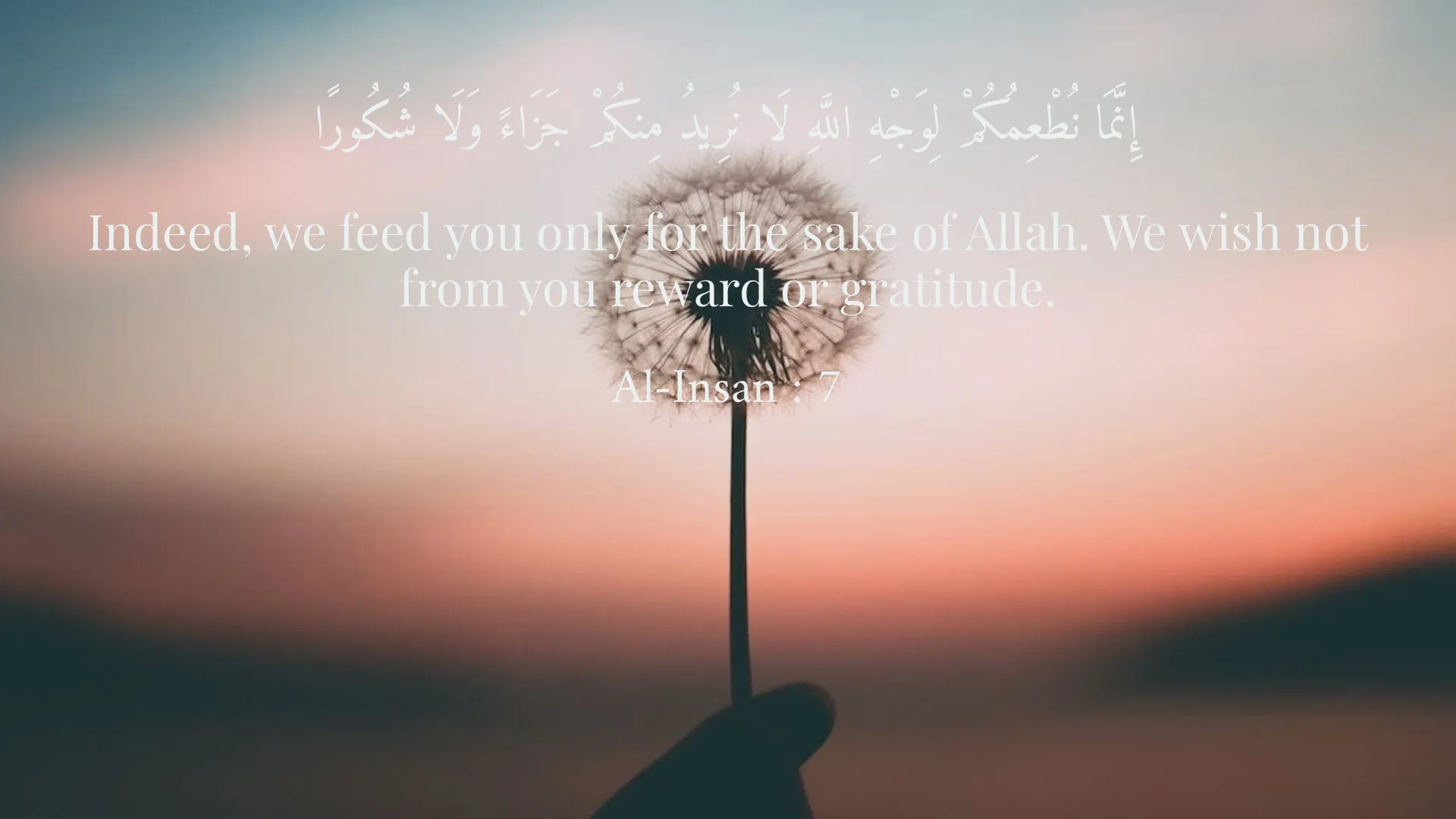Quranic Answer

Fulfilling a vow in Islam holds great significance and can be a reflection of an individual's honesty and commitment to their promises. A vow, in Islamic terms, is a solemn promise made to Allah or a commitment to engage in a specific deed for His sake. This concept is deeply embedded in Islamic teachings, and its importance is underscored repeatedly throughout the Holy Quran. The act of fulfilling a vow not only highlights an individual’s integrity but also represents a profound commitment to one’s faith and relationship with Allah. ### The Significance of Vows in Islam The Holy Quran emphasizes the importance of fulfilling vows in several verses, indicating its vital role in the lives of Muslims. It stresses that honoring a promise is not merely a good practice but a divine obligation that reflects one's faith and character. For instance, in Surah Al-Insan, verse 7, Allah states: "Indeed, we feed you only for the sake of Allah. We wish not from you reward or gratitude". This verse illustrates that when individuals engage in acts of charity or kindness with the intention of serving Allah, they are doing so with a pure heart and without any expectation of recompense. This perspective is particularly significant in a world where self-interest often prevails; Islamic teachings remind us to act out of sincere devotion. Furthermore, in Surah Al-Nazar, verse 29, it proclaims: "He fulfills his vow." This statement not only highlights the expectation for God's servants to fulfill their promises but also reinforces the idea that an integral part of faith is rooted in the ability to maintain one's commitments. The Quran stresses that vows should be executed properly, demonstrating a person's sense of responsibility. Engaging seriously with one’s vows also involves understanding the magnitude of that commitment. ### Understanding the Nature of a Vow To fulfill a vow appropriately, the first step is to clarify the vow itself. It is crucial for an individual to have a precise understanding of what they vowed and under what conditions it should be carried out. This means that a vow should be articulated clearly, preferably in a way that aligns with Islamic principles. For example, someone may vow to pray a specific number of additional prayers, provide a set amount of charity, or assist in community service initiatives. By defining the conditions of the vow, the individual paves the way for successful fulfillment. Moreover, the nature of the vow must be good and beneficial. It should ideally be linked to a positive action such as assisting the needy, engaging in acts of kindness, or offering additional prayers. Such acts not only contribute to the welfare of society but also hold great spiritual merit in the eyes of Allah. The act of providing for others, helping the distressed, or participating in charitable work reinforces the communal spirit cherished in Islam. ### Seeking Forgiveness and Making Amendments Even if circumstances arise where an individual is unable to fulfill their vow completely, Islamic teachings provide a pathway for seeking forgiveness from Allah. Life can present unforeseen challenges, and not all individuals can deliver on their promises despite their best intentions. In such cases, it is encouraged to turn to Allah sincerely and ask for His forgiveness. The act of acknowledging one's inability to complete a vow is, in itself, an expression of humility and sincerity. Moreover, one can attempt to amend their vow. This might involve compensating for unfulfilled promises in different ways, such as by engaging in extra good deeds, fasting, or even making a new vow to solidify one's intentions. The flexibility in Islamic law recognizes that human life is unpredictable, thus allowing individuals to still maintain a strong connection with their faith even when stumbling. ### Fulfilling Vows: A Reflection of Faith and Loyalty Overall, fulfilling a vow signifies faith, loyalty, and benevolence, which should be ingrained in the lives of Muslims. It is a reflection of an individual’s character and their standing before Allah. Adhering to one's commitments, especially those made in the name of God, strengthens one's relationship with Him and fosters a sense of accountability. The act of upholding promises is not merely a customary practice but a stepping stone toward building a robust foundation of faith. Furthermore, fulfilling vows establishes a sense of trust among individuals within the community. In a society where trust is pivotal for harmony and cooperation, upholding vows plays a critical role in sustaining interpersonal relationships. ### Conclusion: The Transformative Power of Vows In conclusion, the concept of vows in Islam holds a transformative power that extends beyond just personal promises. The act of making and fulfilling vows calls for reflection on oneself, an acknowledgment of one’s duties towards others, and a deeper connection to one’s faith. It shapes the character of individuals while fostering a spirit of goodwill within the community. Upholding a vow is an intimate expression of faith, and engaging seriously with our commitments lays the groundwork for a fulfilling spiritual life. In every vow, there lies an opportunity for growth, compassion, and an essence of divine connection that enriches the lives of individuals and those around them.
Related Verses
إِنَّمَا نُطْعِمُكُمْ لِوَجْهِ اللَّهِ لَا نُرِيدُ مِنكُمْ جَزَاءً وَلَا شُكُورًا
Indeed, we feed you only for the sake of Allah. We wish not from you reward or gratitude.
Al-Insan : 7
يُوفِي بِالنَّذْرِ
He fulfills his vow.
Al-Nazar : 29
Short Story
One day, a man named Ali vowed to help a hospitalized patient. He decided to visit him every day for a specified period and assist him. This act fostered a positive change in both Ali's and the patient's lives, as they developed a close bond. Ali realized that fulfilling a vow not only positively impacts others' lives but also brings him peace and happiness.